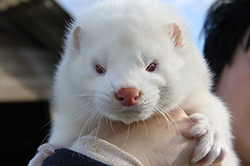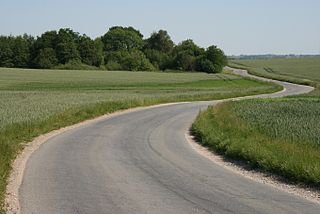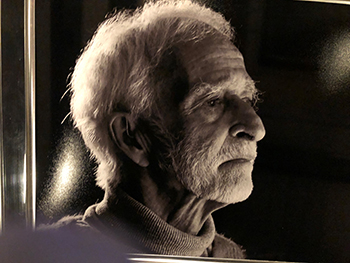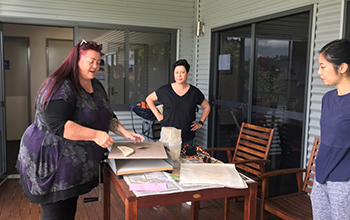
Humans, Animals and Covid19: a two-way street (or roundabout?)
As I write this the total number of confirmed cases of SARS-CoV-2 / Covid19 in the species Homo sapiens sapiens is 66,868,965, with 1,430,389 deaths. Given a global population of 7.8 billion, that’s approximately one death per 5,500 people.
Ours is not the only species susceptible to infection with Covid-19. This article attempts to describe what that might mean for us and for other species.
Just as the dromedary camel was susceptible to MERS, some other mammal species have structurally similar binding sites for Covid19 (aka SARS-CoV-2). These are primarily the angiotensin-converting enzyme 2 (ACE-2) receptors in the lungs, to which the SARS-CoV-2 spike proteins attach. Similar binding sites means that these species can potentially be infected with it. (Although fewer of these mammal species are similarly affected by it due to different host immune responses.)
The consequences of this fact have several aspects:
Firstly, there’s the risk of zoonotic (animal to human) spill-over from an intermediate host, as was recently seen in Denmark with a dozen human cases of infection with a Mink mutation variant of SARS-CoV-2.
- Details
- Written by: Mike Fitzgerald, veterinarian, Alstonville
Read more: Humans, Animals and Covid19: a two-way street (or roundabout?)

Whither the PHN?
Primary Health Networks (PHNs) were originally envisaged as local organisations that knew their local area and its needs and could tailor their programs to their individual circumstances. They arose following a review of the predecessors, Medicare Locals, by John Horvath in May 2014.
By devolving a lot of decision making from Canberra to 31 geographic areas each of just under a million people, the Federal Government could be more efficient in getting value for its health dollar. Many GPs welcomed this approach and looked forward to having a close working relationship with their PHNs to further primary care.
A criticism of the previous Medicare Locals was that, on occasions, they were direct providers of services and thus in competition with other similar providers in their areas. The conflict caused by this direct competition was deemed unfair by the Coalition government who prefer a market driven approach to funding government services. PHNs were thus designed to only be commissioners of services and provide no clinical services directly themselves.
- Details
- Written by: David Guest

A lifetime in psychiatry
Dr Harry Freeman reflects on his long career.
In the 1970s my first year training in psychiatry was in a huge mental hospital in country New South Wales - there were ten such hospitals, all about 100 years old - sandstone, farm self-supporting, beautiful gardens - run by the nurses and only a couple of doctors.
A hospital house for working wife and baby (and Grandma), pay rise from $4,000 per annum as a similar RMO to $7000 as a registrar, ignorant, grandiose, political activist, anti-Vietnam, anti dominant paradigm, cocktail pianist, energetic and not hesitating. I felt good.
- Details

UOW - Making space – Building our story.
Making space – Building our story.
provided by Joanne Chad, UOW Program Coordinator
Staff and student community day with Emma Walke and Rebekah Hermann
Under the inspiration of Emma Walke and the Caucus Not Caucus committee of the UCRH, medical students from UOW, WSU and USYD, along with UCRH staff and community members participated in “Making Space- Building our Story”- two aboriginal culture learning and development days to make the items needed for a reflection/ bush tucker garden. Local aboriginal community members shared their knowledge of clapstick making, plants and pottery, with enthusiastic students producing their own sets of clap sticks and their own ceramic tiles. The tiles were individual’s contribution to ‘building our story’ and would later be added to the garden, part of an ever changing and growing river that will ‘build our story’ of the UCRH over time.
- Details
Chairman’s Report 2020
This year has been unforgettable, to paraphrase Nat King Cole (though not necessarily for the same reasons!). However, 2020 has presented NorDocs with some new opportunities, along with new challenges. We are pleased that membership has expanded from GPs to include all doctors working in the Northern Rivers.
We are also pleased that our Board membership has increased and we welcome new Lismore Base Hospital staff surgeon, Trafford Fehlberg, and Mullumbimby GP, Helen Lloyd, to the Board.
The aim of NorDocs is to represent all medical practitioners within our region and to advocate on any issue that either impacts us or which we feel needs addressing.
We try to be an open and welcoming forum for members to discuss any matters that they wish, as well as being a forum for further education of our members.
- Details
- Written by: Dr Nathan Kesteven Chair Nordocs 2020
Page 44 of 177















